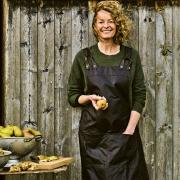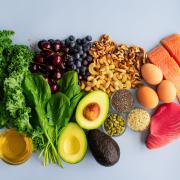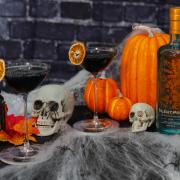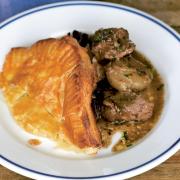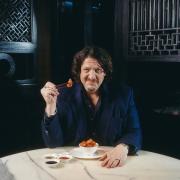Rick Stein’s latest cookbook, Food Stories, is made up of recipes inspired by his travels around the UK for the BBC show of the same name, discovering global cuisine right on our doorstep.Rick Stein has made it his life mission to persuade people to eat more fish.
“A lot of people, they’re frightened of fish, they’re not used to it and they don’t really know what fresh fish really tastes like, because they haven’t had enough,” says the TV chef.
“As soon as you start giving people really fresh fish… it’s a revelation.”
The 77-year-old presenter opened his first fish restaurant in Padstow, Cornwall in 1975 (he now has 10 across the country) and hosted his first TV show in 1985.
Battered fish and chips and fish finger butties might be synonymous with British food, but he says we don’t have the same love for fish and seafood as many European countries.
“I’ve come to the conclusion, I just think it’s [due to] what you used to be given as a child,” says Stein, who eats fish three to four times a week.
“They have a traditional dish on Christmas Eve in Spain – hake with clams and asparagus and a white sauce, and that means so much to them. We don’t have a dish at Christmas Eve for fish. We don’t have a dish really, apart from fish and chips, we have very few [fish] dishes that we celebrate.
“And I think it’s just that as children, very few of us ate fish regularly. And what you have as a child, I often think, you just yearn for. Because if you’re lucky enough to have had a happy childhood, it’s sort of comfort, and it’s memories. And I just think it hasn’t happened to us.
“And you go to any country where they do have fish as part of their family diet, then everybody feels totally different about it.”
Funnily enough, other countries love the seafood Britain produces. “The enthusiasm of the French and the Spanish, particularly for our shellfish, is enormous. You go to Northern Spain and where they love their crabs, and you know perfectly well that our own shellfish is on sale there,” says the chef.
“It’s a bit of a shame that we don’t eat more of it ourselves.”
“Generally, we can only benefit from other cultures coming into this country and one of the biggest ways that we benefit is through food and through dishes from all over the world.

RECOMMENDED READING
- 3 new Rick Stein recipes from the Food Stories cookbook
- Do Rick Stein's children work in the family business?
“Where would we be, for example, in this country, without Indian cuisine, which is a very important part of the nation’s favourite dishes, or Italian cuisine.”
From crab and sweetcorn soup inspired by Chinese food he had in Peterborough, and Raghda Pethis, an Indian pea dish he ate in Leeds, to jerk chicken from a Bristol institute, the book is “an acknowledgment that British [food] is in this position in the world where people criss-cross it all the time”, according to Stein.
A particularly special dish to him is pork adobo, a Filipino recipe from [Kubo in] Belfast. “The reason it means so much to me is that even though I’ve travelled so far all over the world, I’ve never knowingly had Filipino food before, and it completely knocked me out.
“But I think what was so pertinent was that it came from Belfast. If you said you need to go to Belfast because there’s great Filipino cooking there, you’d say ‘What?’.
“We had Kamayan [a communal feast], they put a load of trestle tables down, banana leaves on the table, bearing in mind that it’s raining on a rather cold day, and produce this unbelievably wonderful tropical food.”
The cooking method is to take meat like pork or chicken, add brown sugar, vinegar and soy sauce, before reducing it down with garlic and other spices until it coats the meat. “It was a way of, I think, originally preserving meat, a bit like beef rendang – just absolutely lovely.
“They have all these fresh pickles, and I had pickled mango with it, and a lovely rice dish flavoured with pandan leaves. And I just thought, it’s a bit like the first time you ever tasted Thai food, you just say, ‘I can’t believe this is so good’.
Meanwhile he discovered delicious Nepalese food in Ashford, Kent. “It turns out that there was a Gurkha military base there, so this restaurant has sprung up, and it’s not the only one around there, there’s a large Nepalese population there. And it’s just fantastic to find yourself in a not particularly well-known (to me) part of Kent and there you have this gorgeous Nepalese food.
“There’s a slight sort of element of irritation on my part, because people in other countries, notably France and the United States, still think the food in the UK is second-rate. It’s probably one of the best places in the world to eat now.”

Rick Stein’s Food Stories is published by BBC Books, priced £28. Photography James Murphy. Available now





